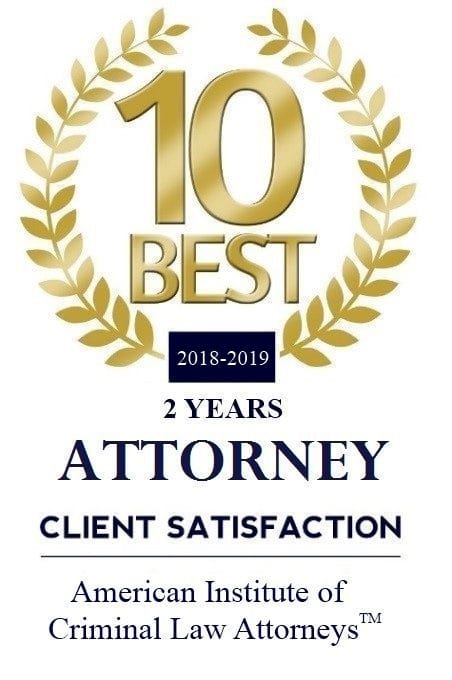FAQ’S
We don’t prepare your matter for trial “just in case negotiations breakdown”. We prepare your matter for trial so you can win the trial. This focus shifts the bargaining power in your direction!
General FAQ’s
-
Do you handle cases outside of Miami-Dade and Broward Counties?
A: Although The Arthur Firm, P.L., primarily handles cases in Miami-Dade and Broward counties, we are willing to represent you throughout all of Florida. Our attorneys may also represent your interests in other states by appearing pro hac vice in those jurisdictions. -
Do you have evening or weekend appointments?
A: Definitely. The Arthur Firm, P.L., prefers to avoid having you lose time from work or school to consult with us. -
Do you offer payment plans?
A:Absolutely. We do our best to keep our payment plan models flexible enough to accomodate your cash flow. Payment methods include most credit cards, cash, personal checks, and money orders. -
Why should I put your firm on retainer instead of hiring you by the case or as each project arises?
A: Because an ounce of prevention is worth a pound of cure. The entrepreneurs who run small businesses have worked too hard to jeopardize their assets with legal liability. Too often, businesses do not realize the extent of legal liability which they are exposing themselves to. Having immediate access to a skilled attorney as you make your day to day operational decisions will prevent unnecessary litigation, stress, and costs in the future. Waiting for a specific case or project to arise can often be too late to stop an avalanche. Ask us about our different retainer arrangements which have been structured to fit the legal needs of your business. -
Why should I hire an attorney to represent me in Small Claims Court?
A: You shouldn’t. Attorneys charge more money than its worth for the amounts involved in Small Claims Court. However, you can still benefit from an attorney’s advice before you get to court. So what you should do is hire an attorney to coach you to represent yourself in Small Claims Court. That is the service The Arthur Firm offers – to coach on what to say, what NOT to say, what the judge will be considering, etc. Because it is just coaching, we are able to keep the fee to a minimum so that the benefit you gain from our service is still financially worth it to you.
Criminal Defense FAQ’s
-
Why did the judge give my loved one “No Bond”?
A:Either your loved one picked up new charges while already out on bond for a pending case or while on probation for an older case, OR your loved one has been charged with a No Bond charge.When people are arrested on new charges while already out on bond or while already on probation, judges feel that the defendant has ruined the “break” they were given by being let out on bond or by being on probation. So they order No Bond to keep the defendant locked up until the matters are all resolved.
When people are arrested for non-bondable charges, they are not entitled to a bond and must have an Arthur Hearing to try to get a bond. See Arthur Hearing FAQ for more.
-
What is an Arthur Hearing?
A:The Florida Constitution guarantees everyone the right to a bond when arrested, but there are three types of charges that do not qualify for this guarantee: capital felonies, life felonies, and felonies punishable by life.Capital felonies are those charges which qualify the defendant for the death penalty. Life felonies are those charges where the sentence is mandatory life. Felonies punishable by life are first degree felonies where the sentence can be life (instead of “just” a 30 year maximum for regular first degree felonies).
For these three types of charges, the judge will order No Bond. However, you can ask for a hearing before the trial to test the State’s evidence and see if it amounts what we call “Proof Evident, Presumption Great”. The name of that kind of hearing is called an Arthur Hearing. At the hearing, which is like a mini-trial, the State must present its evidence to show that proof of guilt is evident and the presumption of guilt is great. If it fails, the judge MUST give the defendant a bond. Even if they pass the test, the judge is still allowed to order a bond but the defendant needs all the family support possible to convince the judge to do so.
-
What does it mean when the States says that I am a Career Criminal, or the State files a Notice of Enhanced Penalties?
A:It means the State believes that the defendant qualifies as either a Habitual Offender (HO), a Habitual Violent Offender (HVO), a Violent Career Criminal (VCC), or a Prison Releasee Reoffender (PRRP), and so the State is seeking to make their sentences worse than what they would be.Habitual Offender – A defendant qualifies as an HO if he gets convicted of 2 or more felonies, and the last felony was within the last 5 years, and the neither of the felonies being used for this was Possession or Purchase of Cocaine (that does NOT include Possession with Intent). If he qualifies as an HO, his maximum possible sentence gets doubled. This does NOT mean he will actually be sentenced to extra time, it just means the judge CAN do so.
Habitual Violent Offender – A defendant qualifies as an HVO if he gets convicted of a felony and at least one of the felonies listed in the statute as a “violent” felony (such as robbery, armed burglary, agg battery), and that violent felony was within the last 5 years. If he qualifies as an HVO, his sentence then includes minimum-mandatory prison time and the length depends on the degree of felony for which he&srquo;s currently charged.
Violent Career Criminal – A defendant qualifies as a VCC (aka GORT) if he gets convicted as an adult at least 3 times for an offense listed in the statute (similar list to that for HVO), and the defendant has been to state prison before, and the primary charge he currently has is also on that list. If he qualifies as a VCC, his sentence then includes minimum-mandatory prison time that is longer than the minimums for HVO, again depending on the degree of felony for which he&srquo;s currently charged.
Prison Releasee Reoffender – A defendant qualifies as a PRRP if he has been released from prison within 3 years of the incident date for his new charges. If he qualifies as a PRRP, then his mandatory-minimum sentence is actually the maximum possible for the degree of felony for which he’s currently charged.
-
How do I decide whether to take my case all the way through trial or to accept a plea offer?
A:It depends on the lawyer you have, the strength of evidence against you, and your own nerves. Some attorneys charge extra for having to represent you at trial, and they may have good reason to do that. So if you do not have the extra money to pay, then you may have to accept the State’s plea offer.At The Arthur Firm, we do not charge extra for a trial because we to go to trial from the moment we accept the case, regardless of whether you will end up accepting a plea. This approach results in better plea offers for our clients because when the State realizes that your lawyer is both eager to go trial and able to represent you at the trial with superior skill, the State is forced to re-evaluate strength of their case. That often causes the plea offers to become more reasonable, and if not then we are already prepared for the battle.
The other consideration is the strength of the State’s evidence. Please be aware that just because their witnesses are total liars does NOT mean the State’s case is weak because whether they are lying or not is a decision made by a jury, not the judge or the prosecutor. The strength of their evidence really depends on whether their story is believable, whether they can get the different parts of their story admitted into the trial, and whether YOU have any witnesses to contradict their story.
Finally, you must be able to withstand the nervousness of going to trial. You will have to deal with testimony that is false or misleading, funny looks from the jurors, and unfavorable comments from the prosecutor. If those types of things will cause you too much stress, then you may want to negotiate the best possible plea offer or just find some way of dealing with the stress.
-
How can two defendants with the same charges get very different plea offers and sentences?
A:A defendant’s plea offer and/or sentence depends on much more than severity of the charges they face. The biggest factor is their criminal record. But even if their criminal records are the same, you must also keep in mind that both the judges and the prosecutors have a lot of discretion they can use to decide where in the range of possible plea offers or sentences they want to land. So some judges take certain crimes more seriously than others, and the same goes for the prosecutors.For instance, Possession of Cocaine is a third degree felony and the maximum (not mandatory) is 5 years prison. Judge A may think that is a very serious crime and seek to sentence anyone charged with it to 3 years of prison, which she is allowed to do. Judge B may think drug use cases are a waste of time and seek to sentence anyone in his courtroom with this charge to no more than 30 days in jail, which he is allowed to do. Judge C may not think it is a big deal but still wants to be a “tough judge” and so she seeks to sentence these defendants to a year and a day, which she is allowed to do. These three judges can all have different policies for the same charge, and they can do so despite whatever criminal record a person has. But they can also change their policy because of a person&srquo;s criminal record.
So when considering the treatment a defendant gets, remember that the charges themselves are only the beginning. The other factors include the defefndant’s criminal record, the prosecutor’s policies with those charges or that kind of criminal record, the judge’s policies, and do not forget to consider the facts of the cases themselves. The harsher the facts, the harsher the sentence. However, even with harsh facts, the plea offer may be light if the prosecutor is unable to get those harsh facts into the trial. All of these factors together get thrown into the pot, and sometimes what comes out is very different than expected.
-
What do I score out to?
A:Your score depends on your criminal record and your new charges, but it is not that simple. We take all of your charges and plug them into a formula to calculate your score. There is no quick way to do the formula in your head because you have to refer to the list that gives the point value for each charge. Those point values are not always the same, and sometimes there are added points to throw in. This means you must always work through the whole worksheet to get the exact score.Please Note: some charges obviously score you out to prison time even the first time you do it, like murder, sexual battery, etc. But many people do not realize that all you need is one burglary count to score mandatory prison. Burglary has the harshest scores next to the murder and sexual battery type charges.
-
What are the different reasons my Driver’s License may be suspended?
A:Florida considers driving a privilege, and not a right, which means it can be taken away much easier than a right. The reasons for suspending the privilege are: unpaid tickets, not having auto insurance, not paying child support, DUI charges, too many points on your license, and/or dropping out of school. But the one reason that comes as the biggest surprise to most people is this: possession of any illegal drugs. That means if you are convicted for possessing any of the illegal drugs (and it has nothing to do with whether you had them while driving), the DMV will take your license for 2 years. So keep that in mind. -
How did I become a Habitual Traffic Offender?
A:You have three Driving While License Suspended/Revoked charges within the last 3 years which were not dismissed. Even if adjudication was withheld, the case will still be used to label you as an HTO and the DMV will take your license for 5 years. If you are caught driving during that suspension, you are going to be charged with a third degree felony.


